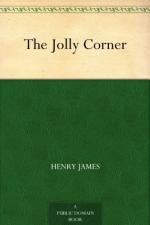He liked however the open shutters; he opened everywhere those Mrs. Muldoon had closed, closing them as carefully afterwards, so that she shouldn’t notice: he liked—oh this he did like, and above all in the upper rooms!—the sense of the hard silver of the autumn stars through the window-panes, and scarcely less the flare of the street-lamps below, the white electric lustre which it would have taken curtains to keep out. This was human actual social; this was of the world he had lived in, and he was more at his ease certainly for the countenance, coldly general and impersonal, that all the while and in spite of his detachment it seemed to give him. He had support of course mostly in the rooms at the wide front and the prolonged side; it failed him considerably in the central shades and the parts at the back. But if he sometimes, on his rounds, was glad of his optical reach, so none the less often the rear of the house affected him as the very jungle of his prey. The place was there more subdivided; a large “extension” in particular, where small rooms for servants had been multiplied, abounded in nooks and corners, in closets and passages, in the ramifications especially of an ample back staircase over which he leaned, many a time, to look far down—not deterred from his gravity even while aware that he might, for a spectator, have figured some solemn simpleton playing at hide-and-seek. Outside in fact he might himself make that ironic rapprochement; but within the walls, and in spite of the clear windows, his consistency was proof against the cynical light of New York.




